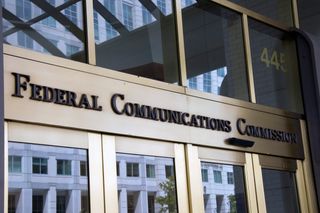Coalition: ORAN Should Be Option in Rip and Replace

The newly-formed Open Radio Access Network [ORAN] Policy Coalition is urging the FCC to use its implementation of the Secure and Trusted Networks Act to promote open, interoperable, software solutions for a secure 5G supply chain.
Related: House Republicans Praise New 5G Security Coalition
Congress basically mandated the FCC to do what it was already planning to, but will also fund the process, which the FCC definitely needed.
Related: Commerce Hits Huawei with New Restrictions
The idea both in an FCC item that preceded the bill, and in the bill, is to prevent government broadband subsidy to be used by any carrier planning to use suspect tech (at the outset the FCC proposed putting Chinese telecoms Huawei and ZTE in that category) in their broadband buildouts, as well as to come up with a way, and the money, to fund "rip and replace" or "offramp and replace" that technology from existing networks.
At the same time, the FCC is looking at open Radio Access Networks, which "softwire" as it were rather than hardwire network architecture using radio waves rather than physical connections, thus virtualizing more of the network and making it more software dependent, a space the U.S. dominates, rather than hardware-dependent, where China, and particularly Huawei, dominate.
That is the coalition's sweet spot, obviously.
Multichannel Newsletter
The smarter way to stay on top of the multichannel video marketplace. Sign up below.
"[I]t is a national security imperative that U.S. communications networks provide secure and reliable connectivity," the coalition told the FCC in comments on its implementation of the Secure and Trusted Networks Act, pointing out that open and interoperable RAN solutions are ready to be the replace in "rip and replace."
The coalition wants the FCC to develop a list of categories of equipment and services that includes open RAN and virtual solutions and avoid picking "winners and losers," which it arguably would be if it went with a list of specific technologies and suppliers rather than categories.
The Computing Technology Industry Association (CompTIA) also asked the FCC to avoid picking tech winners and losers, and to do so by using categories rather than lists of specific tech.
The coalition currently comprises Airspan, Altiostar, AT&T, AWS, Cisco, CommScope, Dell, DISH Network, Facebook, Fujitsu, Google, IBM, Intel, Juniper Networks, Mavenir, Microsoft, NEC Corporation, NewEdge Signal Solutions, NTT, Oracle, Parallel Wireless, Qualcomm, Rakuten Mobile, Samsung Electronics America, Telefónica, US Ignite, Verizon, VMWare, Vodafone, World Wide Technology, and XCOM-Labs.
Contributing editor John Eggerton has been an editor and/or writer on media regulation, legislation and policy for over four decades, including covering the FCC, FTC, Congress, the major media trade associations, and the federal courts. In addition to Multichannel News and Broadcasting + Cable, his work has appeared in Radio World, TV Technology, TV Fax, This Week in Consumer Electronics, Variety and the Encyclopedia Britannica.

